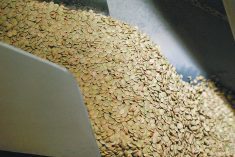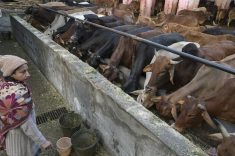MUMBAI/NEW DELHI, Sept 8 (Reuters) – Indian farmers, who have been protesting for months against three new agricultural laws, said on Wednesday the government’s move to raise state-mandated price for new season wheat is not enough to cover the cost of cultivation.
For more than eight months, tens of thousands of farmers have camped on major highways to New Delhi to oppose the farm laws that they say will hurt their livelihoods and favour large corporations, in India’s longest-running growers’ protest.
On Wednesday, the government of Prime Minister Narendra Modi raised the price it will pay to buy new-season wheat from local farmers by 2 percent to 2,015 rupees ($27.39) per 100 kg.
Read Also

Farm Credit Canada partners with major Toronto innovation hub
A FCC parntership with MaRS Discovery District aims to solve technology problems in food supply chains.
India, the world’s second biggest wheat producer, sets a price each year to protect domestic farmers from distress sales and stock grain for emergency needs. It also uses grain to sell food to the poor at low prices.
“The increase in the MSP is too low, especially when overall costs are going up,” Rakesh Singh, a wheat grower from the northern state of Punjab, said referring to annual minimum support prices, or state-mandated guaranteed prices at which the state-run Food Corporation of India buys wheat from local growers.
Indian growers cite a rise in input prices, such as record-high fuel rates and surging costs of labour and fertilisers.
“Farmers have every reason to be disappointed as the 2% increase does not even factor in their production cost, which has gone up due to higher diesel prices, rising electricity tariff and ever-increasing labour costs,” said Sudhir Panwar, the chief of a farmers’ group, Kisan Jagriti Manch.
“The increase in MSP is a routine affair, and the rise is rather small, but the government is trying to project it as a major step to help farmers,” said Singh.
“We still believe that the government doesn’t believe in farmers’ welfare,” he said.
On Wednesday, thousands of angry farmers continued to protest at the central government office in the Karnal district of Haryana in India’s north.















